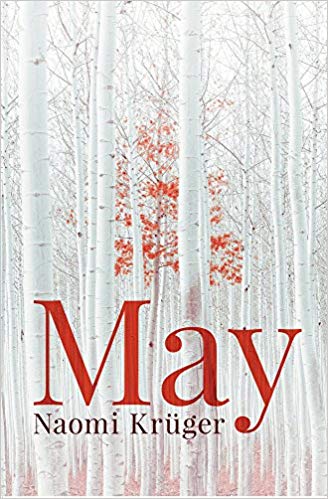Laura Wainwright reviews May by Naomi Kruger, a new look at dementia, with themes of memory, loss, and separation.
It is estimated that, globally, the numbers of people with dementia will increase from 50 million in 2018 to 152 million by 2050. Behind such statistics, which we often see and hear in the media, are individual lives impaired by a disease that, by its very nature, obfuscates attempts at understanding this lived experience. And there are an indistinct number of individuals whose lives are indirectly affected by the condition: family, friends and carers of the person with dementia. This complex picture, surrounding a condition that, Naomi Kruger points out in a recent interview, is ‘often represented in the media in reductive and sensationalist ways’ is at the heart of her debut novel, May (Seren, 2018). May is a dementia sufferer, living in a care home, and part of the novel gives literary form to her fractured consciousness, failing memory and destabilised sense of self. May’s thoughts are narrated in the first person, marking a departure from other memorable fictional representations of dementia such as Samantha Harvey’s The Wilderness (Vintage, 2010). A particular memory – that of a boy with striking red hair – pervades those thoughts and forms a mystery to be solved. The mystery deepens as the novel’s polyphonic character is revealed, offering multiple subjective narrative perspectives that slip from one time frame to another. As Kruger has explained:
I wanted May to be part of a community of voices. [. . .] I [. . .] wanted to show that May’s identity is inter-subjective. She has dementia but she is also part of a family and a community. She is influenced by her past experiences and her current environment in the care home. As I began writing the other narratives, interesting parallels emerged. Many of the other characters feel lost or alone. They forget things, lie or fail to speak. They are not so different from May as you might imagine at first.
We hear from May’s family members and figures from her past, but the most memorable of these voices is Afsana, who works as a carer in the home. Afsana’s parents have moved to the UK from Pakistan and, like May, Afsana is often haunted, conflicted, isolated and estranged. She observes another patient in the home
laid out on the bed with her eyes closed. I kneel on the floor and lean over her. Pull the covers higher, right up to her neck, and straighten out the sheets. Her hair is thin and yellowy. Her skin looks grey, like concrete. I think of my mother in the hospital, nearing the end and how Baba wouldn’t let us see her after she was gone. He could barely speak. [. . .]
I asked Amina what they would do with her body.
‘Wash it,’ she said, ‘and wrap it and bury it.’
Kruger’s portrayal of May’s grandson, Alex, is also convincing and insightful, attuned to the confusion and loneliness sometimes of just being human. The following cleverly captures the angsts of growing up and negotiating the modern world in a way that, again, resonates startlingly with the symptoms of an ailing mind: ‘Staring at the screen with the cursor blinking in the Google search box. The whole world at my fingertips and I can’t think of a single thing to type.’
As noted previously, dementia and its accompanying themes of past, present, memory, loss and separation converge around the central motif of red hair in the novel. On the one hand, this invests May with a powerful visual, quasi-symbolic quality that shines through its, at times, inevitably and necessarily disorientating narratives. But this starts to feel overly repetitive – even excepting May’s own, symptomatic preoccupations and other characters’ prejudices – and rather heavy handed at times, as if the novel is straying too close to stereotyping and to a kind of popular ‘othering’ of people with red hair. The fact that other themes in the novel, as previously noted, are handled so subtly and sensitively makes this all the more jarring. This aside, May is a rewarding read: an ambitious novel that speaks to our times.
May by Naomi Kruger is available now from Seren.
You might also like…
Gemma Pearson reviews the debut novel from Catrin Kean, Salt, which explores salt as a metaphor for separation and suffering.
Laura Wainwright is a contributor to Wales Arts Review.












